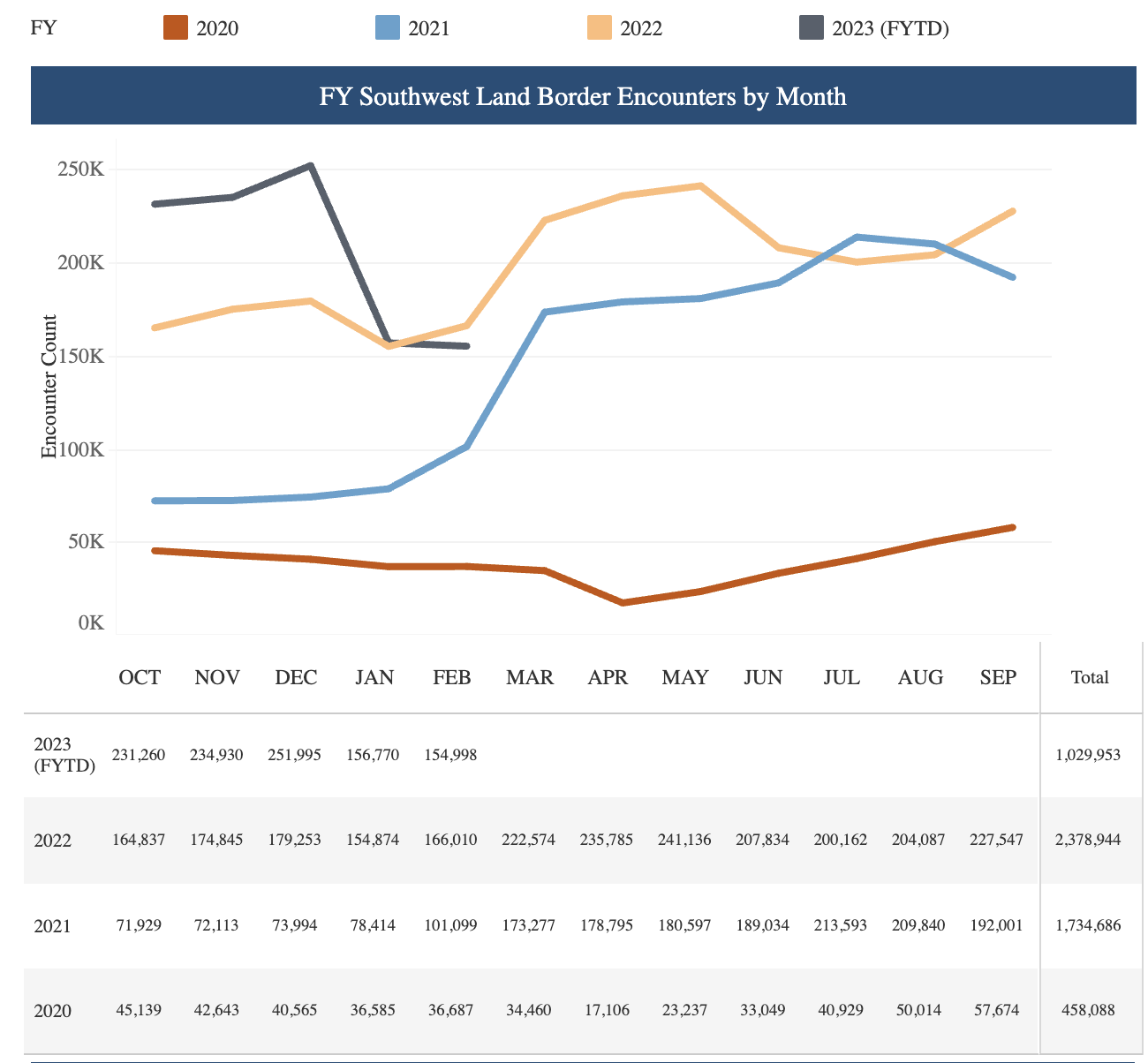
The 130,000 encounters at the border in February were 20,000 fewer than last February, but more than any other February dating back to Fiscal Year 2002.
The real-world numbers are much worse, according to former immigration judge Andrew R. Arthur, but they "don't show up in CBP's apprehension stats because in lieu of entering illegally, the administration ushered them into the United States in an illegal status through the ports."
Good intentions and bad judgment have created a child labor and trafficking crisis.

More than a quarter-million unaccompanied minors have been released into the United States over the past two years. Case workers estimate that two-thirds of them have ended up working full time. The New York Times reports:
Nearly half are coming from Guatemala, where poverty is fueling a wave of migration. Parents know that they would be turned away at the border or quickly deported, so they send their children in hopes that remittances will come back."
Policy makers surely did not intend to create a system where adults around the world would send their minor children to the U.S. to labor as a source of primary income, but that is what they have created.
Batya Ungar-Sargon and Robbie Soave of Rising debate the issue.
Congress should close the loopholes and allow the government to promptly return unaccompanied minors to their families.
E-Verify a solution, again
E-Verify would also prevent illegal child exploitation, if Congress would demonstrate the will to pass H.R. 319.
The primary argument against E-Verify is that it works. That's unacceptable for those who want to maintain an illegal employment system and all the labor savings that go with it.
|
BUSING
New York doesn't require E-Verify, but like Florida, it is receiving the ire of destinations north.
Canada and the U.S. are working out a deal that will result in Canada admitting more migrants, but negotiations have not involved anything that would reduce illegal immigration in the first place.
Cast Down Your Buckets...
We could have an immigration system that promoted the advancement of American workers. Cheap labor has its benefits, but seldom for economically insecure Americans.
Michael Lind doesn't see a lasting change on the horizon until the working-class of all races are empowered within both major political parties.
On a related note, Ungar-Sargon reports that "Black Americans are more supportive of limiting immigration than any other block of the Democratic coalition....and Hispanics actually turn out to be more concerned about illegal immigration than are whites or Blacks."
Congress can start addressing these concerns by cracking down on illegal hiring and asylum fraud.
JEREMY BECK is a V.P., Deputy Director for NumbersUSA











